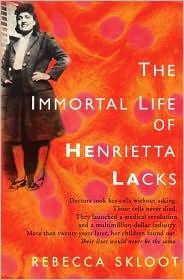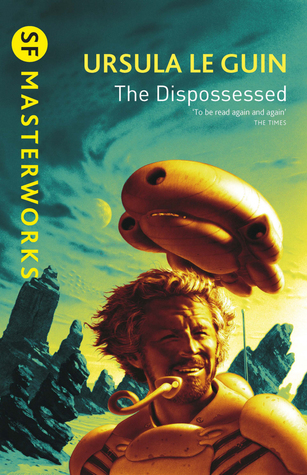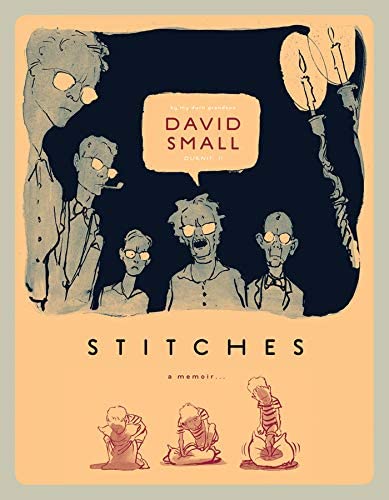ralentina rated The immortal life of Henrietta Lacks: 4 stars

The immortal life of Henrietta Lacks by Rebecca Skloot
Her name was Henrietta Lacks, but scientists know her as HeLa. She was a poor black tobacco farmer whose cells—taken …
This link opens in a pop-up window

Her name was Henrietta Lacks, but scientists know her as HeLa. She was a poor black tobacco farmer whose cells—taken …
Quite possibly, I'm being unfair to this book just because I liked We Have Always Lived in the Castle so much, that anything was bound to fall short after that. The Haunting of Hill House is a well-executed horror story (yeah, I know, milestone in the genre, bla bla), thoroughly classic, and perhaps that's why I didn't find as memorable
The premise is that four strangers spend a week in a haunted house, determined to find out what is going on. The start is quite slow-paced, and when, finally, mysterious, creepy things begin to happen, they go hand in hand with the unraveling of human relations, and/or the lucidity of the protagonist (is for the reader to figure out which one of the two)

Shevek, a brilliant physicist, decides to take action. He will seek answers, question the unquestionable, and attempt to tear down …
Swing Times has many things going for it. I really enjoyed the parts played in London, especially the protagonist's childhood in the estate, and how those bits of the story talk about girlhood, race and class in the UK. I appreciate having a story line that revolves around female friendships more than it does around romance, which would have been an easier way to create tension. It's hard for me to pin down why exactly I didn't 'feel' this book as much as I sometimes do, and felt the protagonist was not really 'alive' as I was reading.
Strange Heart Beating is beautifully written, and reads easily even though the plot is not in a rush of going anywhere. Seb, recently widowed and grieving, embarks on a trip to Latvia to get to retrospectively know his late wife, and the life she shed before moving to the UK. The story is laced through with allusions to mythology and symbolism, which usually annoy the hell out of me, but here felt well-paced and subtle enough. As I was reading, I realised I haven't read many books written by a woman from the perspective of a man. Somehow, I though the portrayal of masculinity that emerges from the book - hurt and restless - was quite perceptive.
I read these stories in a binge, with the help of a long plane journey. Gripping, funny, sinister, elegantly-written... the right read at the right moment, hence the enthusiastic star-rate! The common thread that ties them together is aging + killing. Hard to pick my favourite one. I loved the title story, Stone Mattress, and also the "Alphinland series", and "Torching the Dusties"...which already brings us to 5 tales out of 9.

Finalist for the 2009 National Book Award and finalist for two 2010 Will Eisner Comic Industry Awards: the prize-winning children’s …
A gallery of sociological sketches, an homage to Rome, a commentary on Italy today, and a reflection on contemporary migration, and the experience of being far from home, however you define far and home, all under the pretense of a murder mystery. Though it is not a literary masterpiece, I truly enjoyed it.
Santa Evita is a remarkable book, no doubt about it: beautifully written, original, with a captivating premise, complex characters, and multiple layers of meaning. It narrates the story of Evita's body after her death, of the men who lost their mind and peace after crossing its path, including the authors. It plays with the boundaries between history, fiction and myth, drawing a portrait of Evita, but, more to the point, of Argentina, over the course of five decades. Finishing took me ages, and a certain commitment. From browsing other goodreads users' reviews, I am not alone there. That's not necessarily an indictment of the book, but by the end I found myself growing tired of Evita and her myth, which - fundamentally - is just another version of the woman as madonna / whore, and her devastating effects on men. For a while I was hoping Eloy Martinez was going …
Santa Evita is a remarkable book, no doubt about it: beautifully written, original, with a captivating premise, complex characters, and multiple layers of meaning. It narrates the story of Evita's body after her death, of the men who lost their mind and peace after crossing its path, including the authors. It plays with the boundaries between history, fiction and myth, drawing a portrait of Evita, but, more to the point, of Argentina, over the course of five decades. Finishing took me ages, and a certain commitment. From browsing other goodreads users' reviews, I am not alone there. That's not necessarily an indictment of the book, but by the end I found myself growing tired of Evita and her myth, which - fundamentally - is just another version of the woman as madonna / whore, and her devastating effects on men. For a while I was hoping Eloy Martinez was going to snap his author's fingers and wake his readers up, pointing out that the trope is shallow, trite, and sexist too. In vain: he is in it up to his ears. (Read in the English translation Helen R. Lane)
Priestdaddy is a memoir centered around the author's dad: an overbearing, right-wing, frequently half-naked catholic priest. It is really, really funny. It is also affectionate, and sad. (Please, do or say something nice, so I can put it in the book - is Lockwood's silent prayer to her father). It is also full of depth, tackling head-on issues like falling out of faith, the church's (luck of) reaction to child-abuse within its ranks, and chemical pollution.
I don't know why I put off for reading this book for so long, having read and loved. Things Fall Apart. Though the two stand independently, I wish I remembered more details about the first book, to tie the pieces together. At any rate, I was not disappointed. Though a sense of doomness runs through it, the book reads itself, so to speak. The writing is engaging and elegant, which this is especially remarkable given the weight of the themes handled: family and tradition vs individual choice, one's moral duty in a corrupted structure, colonialism and its legacy, the alienation of the protagonist, caught in between two systems of thought...all discussed with such sensitivity and complexity. Really recommended.
Content warning Minor spoilers
This was the first time I read Agatha Christie - somehow, I could not see why I'd want to do that. I was pleasantly surprised. Like any murder mystery worth its salt, MotOE compels you to read further until you know the solution to the riddle. Unlike its more contemporary progeny, the book does not venture into minute psychological characterizations, or social commentary: the plot is completely at the service of the riddle, scattered with clues - true and false ones - meant to lead and mislead the readers to the murderer, almost setting them up in a race with Monsieur Poirot as to who gets there first.
As a side note, peoples are stereotyped is pretty hilarious (and perhaps a reminder of just how ridiculous stereotypes are, once we are able to lack back at them from an outsider perspective). For example, all Brits are uptight and clever, and all Americans are friendly and loud. Oh, and Poirot literally acquits an Italian on the ground that the crime is thought-through too well to be the product of an impulsive, Latin mind.
I have to stop getting stressed about the right amount of stars each book deserves, but I cannot help feeling that 3 is a misleading number for this one. The Hunger Games is actually almost perfect in its own way: it's a page turner, it has interesting characters that defy (gender) stereotypes, just that little added social commentary that makes you feel there is actually a point to the story, and, in my case, it makes for a great distraction from writing a PhD.
This last one surprised me with a less-than-happy ending. The rhythm is a bit slower than the others, and all the 'good characters' come out of it a little battered. I liked this: individuals can only so much when the overall system is so rigged. Suzanne Collins killed her (our) idol, and I wasn't expecting it.